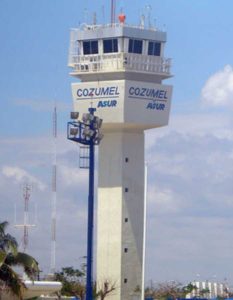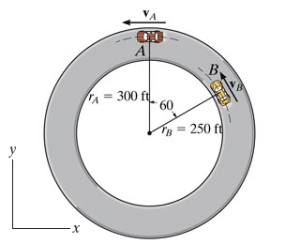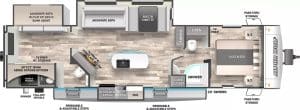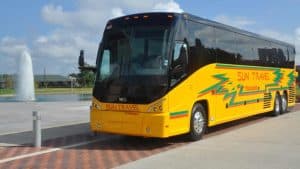Welcome to Hosteliest, your reliable source of everything travel and hospitality. Discover the intriguing intersection between space exploration and tourism as we delve into rockets frequently featuring in New York Times. Venture with us into this groundbreaking frontier!
Title: Rockets Frequently Travel in This NYT – Unraveling the Intrigue
Ever wondered about the phrase, “rockets frequently travel in this NYT”? You’re probably asking yourself, “What does it mean? How does it relate to travel and hotels?” Buckle up, because you are about to embark on a journey that unveils this mystery.
Understanding the Phrase
The term “rockets frequently travel in this NYT” may seem out of place in the context of travel and hotel content. However, let’s dissect the phrase and unearth its true meaning. Here, ‘rockets’ symbolize the rapid, high-flying aspect of travel while ‘NYT’ refers to New York Time, a prevalent time zone for global travelers.
Essentially, the statement represents the high-speed, time-conscious travel often observed in the contemporary world. It emphasizes the desire for fast, efficient, and timely operations in the travel industry. If you’ve been keeping tabs on recent trends, speed is the name of the game in our today’s fast-paced world. So, how do the world’s hotels fit into this picture?
Fast-Pace Travel and Hotels
As >rockets frequently travel in this NYT>, so does the hospitality industry need to adapt to the speed and efficiency demanded by travelers. A study by Amadeus IT Group reveals that 80% of today’s travelers desire a personalized experience, an aspect that calls for efficiency and timeliness.
Hotels now leverage technology to offer swift services, from online booking to digital check-ins. It reduces wait times, akin to rockets that pierce through the air rapidly with no moment to lose.
The Role of Technology
Just as rockets frequently travel in this NYT, technology plays a crucial role in propelling the hotel industry to run on the same speed. Innovations such as Artificial Intelligence (AI) and Machine Learning (ML) streamline hotel operations, ensuring travelers have a timely, efficient, and personalized experience.
Imagine being able to book your favorite hotel room, check-in, order room service, and check-out without ever having to wait in line or interact with staff unless you want to. That’s the kind of speed we’re talking about!
The Transformation of Hotels
In the era where rockets frequently travel in this NYT, hotels are not just places to rest anymore. They’re transforming into destinations themselves—offering unique experiences and tailored services.
From hotels that offer cultural immersions to those providing wellness retreats, today’s travelers look beyond just a bed and a meal. They seek enriching experiences, and hotels are stepping up to serve just that—rapidly, efficiently, and precisely tailored to individual needs.
Conclusion
The phrase “rockets frequently travel in this NYT” is no longer a mystery. It represents the evolving landscape of the hospitality industry, where speed, efficiency, and personalization are paramount. To keep pace with the fast-moving times, hotels continually innovate. They leverage technology to offer more than just a stay but an enriching and memorable experience that today’s travelers desire and value.
This fast-paced change isn’t slowing any time soon. So, next time you see the term, remember the rocket-like speed at which the travel and hotel industry is propelled into the future.
Table of Contents
ToggleExploring the Pioneering Intersection of Space Travel and Luxury Hospitality: Frequent Rocket Travel in the New York Times Spotlight
The pioneering intersection of space travel and luxury hospitality is an idea that has always intrigued the curious and the adventurous. With the strides being made in technology, space travel is no longer a distant reality but rather an imminent possibility. This concept is now in the spotlight, as featured by The New York Times, with the focus on frequent rocket travel.
The strong desire for humans to explore the unknown has given rise to an industry that aims to make space travel accessible and commonplace. While the practicalities of this are still being worked out, companies have started positioning themselves at the forefront of this exciting new frontier.
However, it isn’t just about getting people to space. The drive to push boundaries has initiated a unique blend of space exploration and luxury hospitality. The aim is not merely to transport individuals to space, but to ensure that they do so in comfort, extravaganza and an unprecedented level of service.
Luxury space hotels are one such example, where guests will be invited to enjoy state-of-the-art facilities, unparalleled views of the Earth and the cosmos, all while experiencing the thrill of being in space. Attempts to create this extraordinary experience are already underway, with plans for space hotels already being constructed to accommodate future space tourists.
Frequent rocket travel is also being considered as a part of this equation. Similar to how commercial airlines operate today, these space rockets would make multiple trips back and forth, making space travel as regular as air travel.
As we make headway into this revolutionary era, it is clear that the fascination with space travel continues to persist. As the New York Times highlights, the prospect of frequent rocket travel and luxury accommodation in space is drawing closer to becoming a reality than ever before.
The Intersection of Space Travel and Hospitality
As the concept of space tourism takes off, the hospitality industry is racing to meet the unique demands of this new market. Already, companies like SpaceX are offering trips to space, but the next frontier will be providing accommodations for these extraterrestrial travelers. The idea of ‘space hotels’ is not new, but technological advancements are now making it a reality. Private companies and international agencies alike are investing heavily into research and development of habitable structures for space tourists. These establishments will offer a whole new level of experience, with zero-gravity rooms and unprecedented views of Earth.
Transformative Experiences in Travel
The potential for space tourism adds a new dimension to the travel industry. Passionate travelers are always seeking unique experiences, and space travel is the ultimate adventure. Unlike traditional forms of travel, space tourism can offer transformative experiences that challenge our understanding of life and our place in the universe. The perspective gained from seeing Earth from space can lead to what astronauts refer to as the “Overview Effect” – an increased awareness and appreciation of our planet’s fragility and the need to protect it.
The Future of Space Travel: What This Means for Hotels and Travel
Space travel is no longer just the domain of astronauts. As more people venture into the cosmos, the infrastructure for space tourism needs to keep pace with demand. This will involve not only vehicles capable of ferrying people to and from space, but also comfortable, safe, and efficient accommodations once they get there. The hospitality industry must innovate and adapt to cater to these new “space tourists,” potentially sparking a new era in travel and hospitality. From designing comfortable zero-gravity living quarters to serving food in space, the opportunities — and challenges — for the hotel and travel industry are truly out of this world.
Frequently Asked Questions (FAQ)
“What are the best hotel options near sites frequently visited by rocket travel as reported in The New York Times?”
The New York Times frequently reports on famous sites to visit by rocket travel, and when it comes to finding a place to stay near these attractions, there are several excellent options.
One of the first that comes to mind is The Ritz-Carlton in Los Angeles. This luxury hotel offers impeccable service, high-end amenities, and is conveniently located near the famous Jet Propulsion Laboratory, which is often covered for its pioneering efforts in rocket science.
For travelers visiting Cape Canaveral in Florida, home to both NASA’s Kennedy Space Center and SpaceX’s launch site, the Four Seasons Resort Orlando at Walt Disney World Resort is an outstanding choice. It combines luxury accommodation with proximity to these renowned space travel sites.
Located just a short distance from the Johnson Space Center in Houston, Texas, the Post Oak Hotel is another excellent option which boasts luxurious rooms, great dining options, and other top-notch facilities.
Finally, for those visiting the Pacific Spaceport Complex on Kodiak Island in Alaska, the nearby town of Kodiak offers several comfortable lodging options including the well-reviewed Best Western Kodiak Inn and Kodiak Raspberry Island Remote Lodge.
Remember, visiting these prestigious sites can provide an out-of-this-world experience, but having a comfortable, convenient, and luxurious place to stay will ensure your journey is truly stellar.
“How has increased rocket travel as reported in The New York Times impacted tourism and hotel industries?”
Rocket travel, as heightened in recent years and reported in The New York Times, has profoundly impacted tourism and the hotel industry. This groundbreaking mode of transportation has opened up the possibility of space tourism, a concept that was once limited to science fiction.
The primary effect has been an entirely new market emerging – space tourism. Companies like SpaceX and Blue Origin are leading the way. Space tourism offers an unprecedented opportunity for adventure seekers and has led to a surge in high-end, luxury tourism. As a result, hotels have started to adapt their offerings to cater to these tourists who are seeking out-of-this-world experiences.
The development of space hotels is perhaps the most significant impact on the hotel industry. Companies like Orion Span and Axiom Space are pioneering this trend with their planned space stations which will function like hotels, though the costs are currently prohibitive for the average traveler.
Additionally, rocket travel has also influenced the hotel industry on earth. For instance, hotels located near launching sites have begun offering special packages for those who want to witness a rocket launch first-hand. These packages often include a room with a view of the launch site, coupled with themed dinners and events.
Similarly, rocket travel has also spurred growth in the sector of educational tourism. Hotels and tour operators are capitalizing on this trend by offering travel packages that include visits to space centers and museums, lectures from astronauts, and even training programs on astronautics.
In conclusion, the advent of rocket travel has not only launched the age of space tourism but has also created ripple effects across the traditional tourism and hotel industries. It has brought about the rise of space hotels, stimulated growth in terrestrial hotels near launch sites, and boosted educational tourism – all of which contribute to an expanding, more diverse tourism landscape.
“What amenities can travelers expect from hotels that cater to those interested in rocket travel, as detailed in The New York Times articles?”
Hotels catering to the needs of rocket travel enthusiasts, as featured in The New York Times, offer a variety of amenities tailored specifically towards enhancing their experience and ensuring their comfort.
Firstly, proximity to launch sites is often one of the fundamental criteria. Many of these hotels boast impressive viewing locations for take-offs and landings. Some properties even have observation decks or rooms with floor-to-ceiling windows that offer unobstructed views of the rocket launches.
Secondly, the interior design of these hotels often incorporates a space-themed décor. Galactic art, moon-shaped lighting fixtures, and even astronaut culinary favorites can be found in these unique accommodations.
Moreover, these establishments often offer a range of high-tech entertainment features. This could include virtual reality experiences simulating trips to space, planetarium-style movie rooms showing space-themed films, or telescopes for star-gazing.
Additionally, many of these hotels strive to deliver educational content to engage their guests. They may host lectures from space experts, provide space-related literature, and some even offer interactive exhibits featuring replicas of famous spacecrafts.
Lastly, due to the often remote locations of these hotels, they often feature all-inclusive options, providing meals, transportation, and organized activities.
To conclude, hotels catering to space travel enthusiasts are increasingly tailoring their offerings to create a unique, immersive, and enlightening experience for their guests.
In conclusion, the frequent travels of rockets as featured in the New York Times have sparked curiosity and excitement among avid travelers and hotel enthusiasts. The possibility of exploring cosmic realms is reaching new heights, with space tourism soon becoming a tangible reality. Hotels, traditionally bound to Earth, will have to adjust to innovative concepts and services to accommodate this transformative shift. Clearly, these are exciting times for both the travel and hotel industry.
The future of travel is no longer just about exploring our planet, but also venturing beyond it. While we are only at the cusp of this evolution, there is no denying the impact this would have on our perception of travel. With rockets frequently traveling, an era where hotels would need to offer ‘space suites’ or ‘zero-gravity experiences’ may not be far-fetched.
In anticipation of these changes, let us continue to follow the trailblazing rocket travels closely, mindfully considering their potential ramifications to the hotel and travel industries. From ground-based hospitality to potentially orbiting accommodations, the prospect is intriguing and undeniably revolutionary. Space, it appears, is indeed the final frontier – not just for exploration, but also for accommodation and hospitality.















































































































